Text
prog fans that are still alive this is for you

3K notes
·
View notes
Text

catholics in 1793 be like
744 notes
·
View notes
Text

who even are these people
#absolutely love your artstyle!!!!#and their expeessions oh my you drew them perfectly#frev#louis antoine de saint just#maximilien robespierre
308 notes
·
View notes
Text





old and kinda cringe stuff but yeah okay ❤️
72 notes
·
View notes
Text
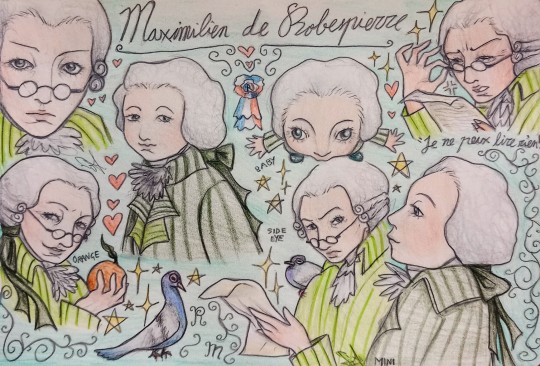
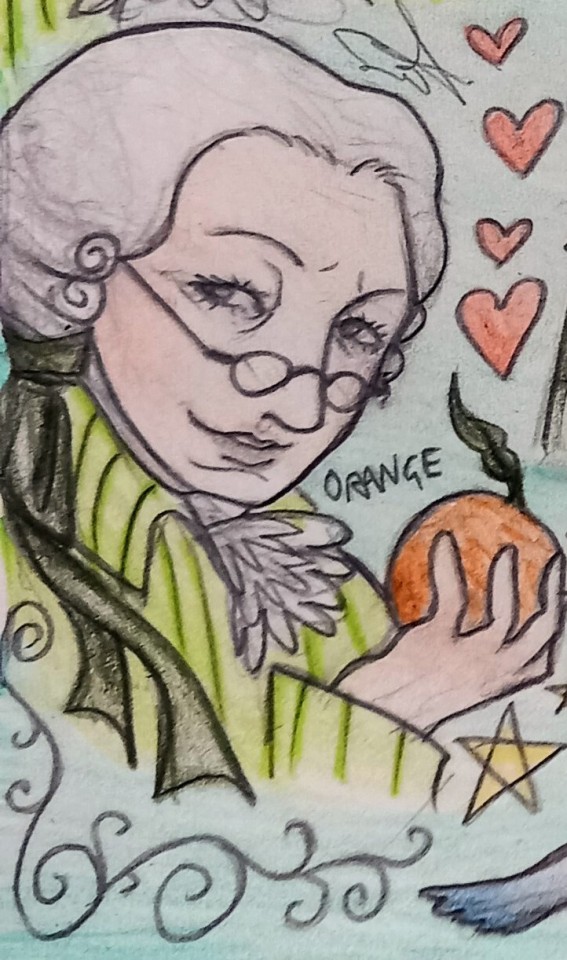


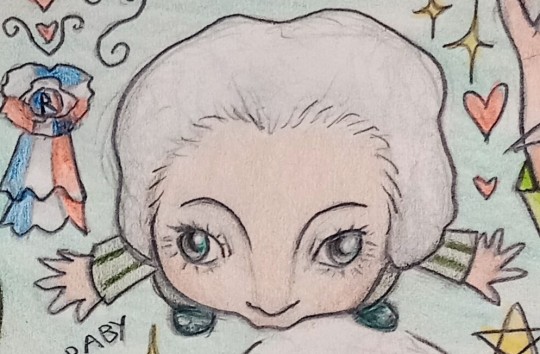
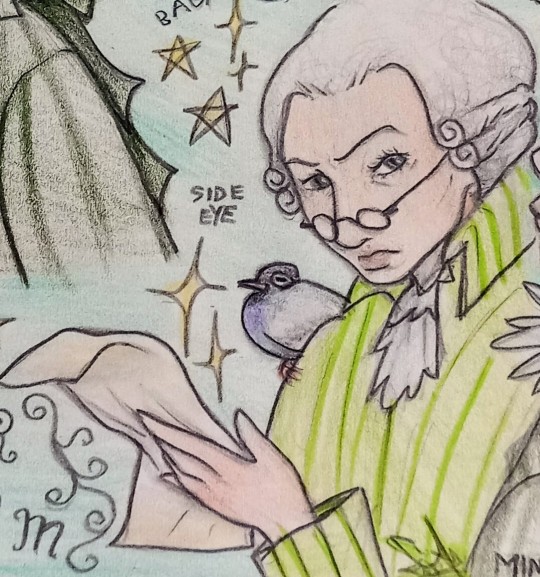
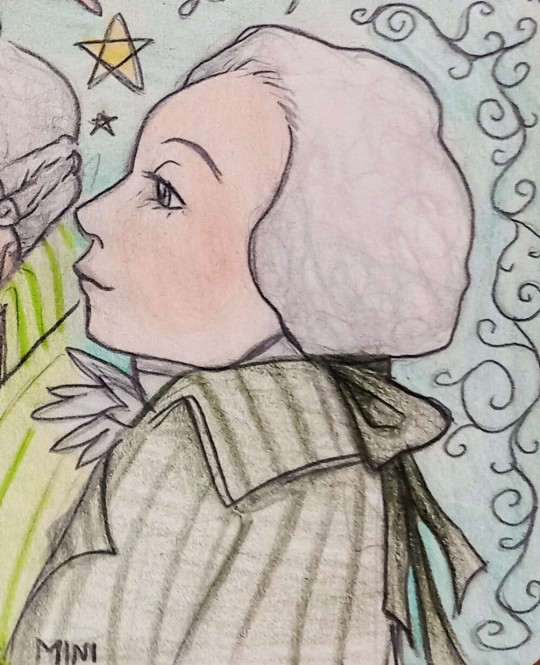
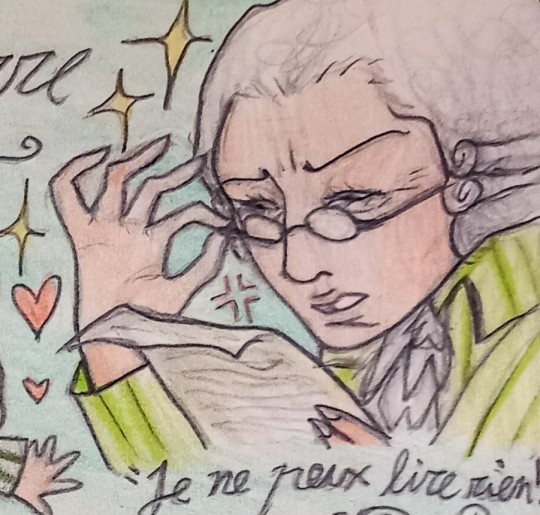
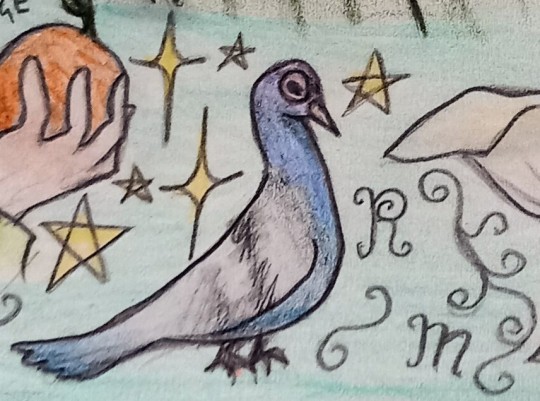
✿ MAXIMILIEN DE ROBESPIERRE ✿
robespierre fanart !
126 notes
·
View notes
Text
Finally answering this:

Thank you, @saintjustitude for asking me to rant—I adore doing just that :]
(First of all, thank you to everyone for waiting. I know I took a lot of time to write this, but I had only around an hour free every day, and I usually spent it searching for sources. My knowledge is limited; the play isn't available. I rely on memoirs, interviews, and reviews.
My inbox is always open, and if anyone has any Wojtek questions, I'd be absolutely delighted to answer them. And I mean it. It can be anything.
Every quote was translated by me. All my sources are listed.
Unfortunately a part of it wasn't saved, and I don't have access to some info anymore but this post will probably serve as the beginning of a longer thread.)
And now: “Sprawa Dantona” (1975).
1. How did it all come to be? Why was ‘The Danton Case’ and not any other play?

When I say ‘Danton’ directed by Wajda, most probably think of the 1983 version, a political metaphor: Comsal representing the Polish government, Dantonist representing Solidarity. Was it like that originally? Was Wajda just calling for a fight with the government, transforming Przybyszewska's work to fit his own narrative?
In short: No! (At least if we're referring to the 1975 version, the film is completely another story; I'll gladly make another post about it.).
Zygmunt Hübner (I have mentioned him already in this post) chose Wajda to direct the play even though the latter was a relatively young director; something was telling Hübner that giving the play to him would be absolutely necessary. Pszoniak later referred to that event as Wajda being cast in it as much as he himself was.
The play was simply a way to introduce the artistic team Hübner created. There was none of some “noble patriotism’ or 'anti communism'. (None of what Wajda described as the purpose of the later film.)
Why was that play in particular chosen? That is unknown.
“The idea [of exhibiting that play] came from the fact that Hübner was looking for a play (…) that would present his artistic team as a whole, which he assembled with great imagination and intuition.”
At first, Pszoniak laughed into Hübner's face when offered the role. He thought it fine, intruiging, but the character of Robespierre was so foreign to him that he couldn't give anything from his own person or his own experiences to his Maximilien.
He asked for the role of Danton; that role seemed to fit him way better with "his [Danton's] sensuality, his dynamic physiognomy, and his balls."
Wajda and Hübner were quite insistent and more or less forced Pszoniak into the role.
“Hübner and Wajda were so stubborn that they did not take my objection into account. Nothing there [in the role] suited me; there was no starting point for the role. I had no right to play it. But they convinced me for so long that the whole situation with ‘The Danton Case’ became a dead end.”
The transformation from simply a good play to something entirely political in Wajda's eyes was very slow but steady. On that a little later.
2. Pszoniak wasn't ready to play Robespierre? How did he prepare for the role then?
It's very important to note that it was not bad will that made Pszoniak initially refuse the role, but the theater typecast he was put into and which he almost got used to. All of his power and stage presence were connected to his own physicality, to this sort of mobility and expression that he had to (presumably at Wajda's request) abandon while playing Robespierre.

Wojtekspierre getting his hair cut from a man with surprisingly modern glasses
Whether he was in a tragedy or comedy, it was the unique liveliness that made him so different. Suddenly he was offered the role of Robespierre, a man he only knew from unfavorable history books, portrayed a certain way by Przybyszewska, and he's made to stand before the expanse of that character's personality in a try to make him someone physical.
While it might seem quite shocking, when preparing for the role, Pszoniak didn't even read any Robespierre biography. Why? According to him:
“I didn’t think at all about a historical figure, and besides, you can’t play any historical figure. I put aside the books on the French Revolution. I read them much later, when, years later, in Paris. (…) I didn't want to portray a historical figure, so I didn't judge or evaluate him. I simply tried to get closer to him, to understand him as a person. Przybyszewska herself made it easier for me. The text of the play clearly indicated that she was fascinated by him. (...) Przybyszewska constructed this character in an unusual, enigmatic way. I clung to this fascination, it was a reason for treating Robespierre with empathy. This is a necessary condition for creating a character, without empathy you will never be able to get closer to the man you are to become on stage. Wandering through the labyrinth of his emotions, motives for action, opinions he expresses, I became so strongly attached to him, he took over me so much, that as a result I became Robespierre-Pszoniak.”
Pszoniak admitted he didn't want to play a politician [but, of course, as we all know, he was later forced to in ‘Danton’ (1983)].
The preparations took time and patience (especially from his wife - Barbara). Pszoniak tends to describe it as a painful process. Robespierre's physical expression was compared to being bound tightly by his own flesh, almost imprisoned by it, but freed by his mind. Pszoniak realized that all of the power in portraying Robespierre could only be gained from a deeper reflection. How to show a mind on stage?
That Pszoniak didn't know, and so he made the decision to show Robespierre's determination and faith instead of simply a calculated brain. To show a path, an objective. That's why the last scene was so hard to play (conversation between Robespierre and Saint-Just after Danton's death); he even asked Wajda for a white cloth as a makeshift shroud. To Pszoniak, that scene meant the symbolic death of his character. Robespierre (described by Pszoniak as a “very intelligent man") feels that inevitable peril awaits in the near future. The actor often described a feeling of mourning something or someone after the performance.
The challenge of creating the role, in the words of Wojciech Pszoniak:
“I started to control all my reflexes morning till night; from waking up to falling asleep, I was destroying myself. In everyday life, even the smallest activity, I slowed down; I was reducing and cleaning up [every one of] my habits. Torment, the absolute torment of controlling yourself, of managing yourself. Zero spontaneity, the phone rings, my first reaction—run to answer it—I stop myself calmly, in control of every slowed-down gesture. I imitated Zygmunt Hübner's focused gait; I noticed how he placed his feet. And I started walking like that myself. That's how I set a different, more controlled way of moving. After that, I turned to gestures, head movements, the way of getting up, and gesticulation. I felt that I was different. Acquaintances and friends both asked where this change came from. I suppressed the dynamic, extraverted myself.”
And
“I was pushing the boundaries of supervision [over myself], checking how I would behave after drinking a larger amount of vodka. One day I went out with Basia [wife] and friends (...) After a few bottles, at four in the morning, they were amused, cheered up, asking if I was sick because I was behaving like a machine. After three weeks of suffering, I reached ground zero. This happened during the rehearsals. A conversation about Robespierre and Danton. I joined the discussion, exclaiming, 'I disagree!’ - and suddenly I saw that my hand was no longer my hand, that it was not the hand of that Pszoniak that I am, but that it was already a hand—the beginning of someone else.”
3. What of Danton?
Here the problem with the play began. The man cast as Danton, Bronisław Pawlik, was just... terrible.
He was a good actor in general, definitely, but in short (explanation for the anglophones), it was like casting Danny DeVito as Danton.
He was short of stature, weak of voice, much older than Pszoniak, and simply unfit for the role.
He didn't have a stage presence; his voice was silenced by the other people on stage, and Pszoniak kept acting as if there was some great, dangerous opponent when there wasn't—the audience seemed to notice it.
It all added to a kind of feeling of resentment after preparing so long for the role of Robespierre.

Danton (Bronisław Pawlik), Camille (Olgierd Łukaszewicz) and Westermann (Franciszek Pieczka) celebrating
Pawlik was more concerned with the position of the props or the costume instead of conversing and shaping their roles. To Pszoniak it was the role of a lifetime, to Pawlik it wasn't.
“The audience was sitting on the stage because the entire theater had been transformed into the Revolutionary Tribunal. Here, a powerful voice and a [kind of] broad gesture were needed... Pawlik's charm disappeared in the feverish crowd. What consequences did this have for the play? Enormous, Danton was deprived of the strength [for both the audience and actors] to believe that he posed a deadly serious threat to the revolution. And this lack bothered me terribly...”
4. How did it become political then?

As I have previously mentioned, it was a slow, steady process. Even Wajda himself didn't think much of the play; it was the audience that began the change.
As the first example, Pszoniak recalls a scene when Eleonore comes in with tea but not sugar—in the audience at first only a few laughing, but gradually along with the many performances it turned into the whole audience cackling. The play was exhibited just when a time of increasing problems with sugar supplies began in Poland (food stamps for sugar were introduced).
Pszoniak admitted that the cast would often laugh along with the audience. It seemed almost absurd—a tragic play blending with the real world.
When it comes to Pszoniak himself in that time, the more he played the role, the more it felt like “punching the air.” Instead of having a genuine conflict, he had no support, no reference point in Pawlik as Danton or the audience. For the role to have meaning, to be something, it all had to be a matter of life and death. His co-actor was slipping into comedic grotesque while playing the second main role.
"The success of the play was huge, but the audience was eager to read the play [only] in the context of political allusions. (…) The audience felt that something was happening [on and off stage], (…) the tension grew."
The audience's reaction seemed to be a direct answer to the Danton shown on stage. Instead of a political opponent, there stood a sad, tired victim of the committee who seems completely and utterly innocent, all his words said with a kind of saddened charm (doesn't that remind you of a certain film Wajda made later?).
5. What of the other actors?
Here is where I have the least information. If anyone has any more sources of information, actor memoirs, etc., feel free to reblog this post with additional info or simply contact me about it so I could make Part 2. :]

The cast.
I have to tell you something shocking... Wajda is capable of giving actual, normal characterization to secondary characters (gasp, thunderstrike, wolf howling).
Or perhaps that was just the actor/Zygmunt Hübner (I guess we'll never know).
The most information I could gather was about Saint-Just (played by the excellent Władysław Kowalski).
Based off the limited amount of reviews I could gather, he was a positive character in general. Described as “a man gifted with exceptional warmth and [someone] unconditionally devoted to his cause” or “full of raw passion."

AND HE GIVES MAXIME FLOWERS IN THIS VERSION AS WELL, EXCEPT IN THIS ONE ROBESPIERRE (KIND OF) SMILES!
I couldn't find much on Eleonore, Louise, or Lucille, though I've searched and searched for a few days. All I could find is that the actresses were excellent—that is, unfortunately, no source of any relevant information. Frankly speaking, since Wajda, in kind words, doesn't excel at writing women, I don't have much faith in their characterization on the director's part.
Camille played Łukaszewicz is usually called a “complicated youth"—that is, of course, an opinion—or “spontaneous in reflexes"—that's a bit better of a description. As you can see, I am limited by the fact the play isn't available, and I must depend on biased or subjective sources.

Worried Camille Desmoulins (Olgierd Łukaszewicz) - I do think this Camille looks quite nice.
6. And did the critics like it? Was it well directed?
In short, it was a very, very liked play by both the critics and the audience. It ran for 5 years; it ended around 1980, when many of the actors simply left Poland.
About critics and reviews written by them: What surprised me immensely is the fact that most available reviews (written before the release of the film ‘Danton’) of the play weren't anti-Robespierre. The play is often described as something of a moral discussion, something for the viewer to assess, a work that doesn't suggest one solution to understand the conflict, or revolution (in other words, a great play).
A thing I've noticed is that along with time, the descriptions of the main characters seem to change. Danton—in earliest reviews described as “absolutely repulsive," then later as a tragic man, someone who adores life. Robespierre—in earliest reviews described as an absolute “marble statue," an idealist, someone pure, then in later reviews as just a fanatic.
7. What about Wajda? Did he change the text much? What about the scenography?
I was surprised to learn that Wajda absolutely could make a good, Przybyszewska-accurate play.

From all I could find, there is not much I can accuse Wajda of when it comes to ‘The Danton Case’ stage adaptations. It was made very well. What most likely contributed to the later change in people's mentality when met with the play is the fact that the audience was sort of a part of the performance. How? Like this:
“It [the play] takes place on a stage placed in front of the audience; on the actual stage and in the rest of the audience sit in rows of chairs rising upwards. Everything encompassed by the scenography is one theater. This played out brilliantly in the second parts, in the beautifully composed group scenes, where the audience not only looks at the stage but is drawn into it as an extra audience at the hearings of the revolutionary tribunal.”
And
“Wajda made "The Danton Case" as if against himself—against his previous self: he gave up on visual effects, music, and symbolism. He built a spectacle—a spectacle indeed!—raw and beautiful. (…) During the (…) presentation of "The Danton Case," seats for viewers were also installed on the stage, which was fortunately spacious, the audience surrounds the actors, the actors are among the audience, on the balcony, in the passages.”
If Danton or Robespierre were so close to the audience, I think it really did influence the people's opinion of it later on. Pawlik was terrified, jumping like a fish out of water from one audience member to the other, and there was Pszoniak, white and still under his shroud just a few meters away. That did certainly change the performance's reception.
8. Where can I watch this?!

As I have mentioned here: the play isn't available online, but most certainly is somewhere in the archives (confirmed by Pszoniak), when it was supposed to have a TV debut the martial law was introduced, and a few years later everyone seemed to have forgotten about it.
So, erm… Who's raiding the archives with me? (By the way, fragments of the play exist online, but only 10-20 minute excerpts, so if I find the time, I'll try to track them down.).
Sources:
Books:
Aktor. Wojciech Pszoniak w rozmowie z Michałem Komarem, Wydawnictwo Literackie 2009;
Maciej Karpiński, Pszoniak, Wydawnictwa Artystyczne i Filmowe Warszawa 1976;
Małgorzata Terlecka-Reksnis, Pszoniak. Fragmenty, Wydawnictwo Poznańskie 2024
Photos used and play reviews (pardon the rhyme):
http://encyklopediateatru.pl
65 notes
·
View notes
Text


Now he looks at me with disapproval because I can't finish art with him😔😰
51 notes
·
View notes
Text



@bluelikethevoid submitted: What's this big baby? Ontario, canada
Lorge...and beautiful. They are a modest sphinx!
628 notes
·
View notes
Text

I took the infamous Deseine bust of Robespierre and combined it with his various painted portraits. Here’s my best attempt.
It’s a coincidence he ended up looking very similar to actor Jean Negroni. That’s why I believe Negroni portrayed him best.
92 notes
·
View notes
Text

drew this a billion years ago(around thermidor 9this year) i think its nice enuogh to post i dont kniw how to interact w peopl or social etiquette here byt everyione is so nice i love people yayyyy
113 notes
·
View notes
Text

I did draw something for Halloween but I was going thru some stuff and lowkey i ran out of time so i didnt post it so now is a very delayed rough image of spooky vampire Robespierre
326 notes
·
View notes




